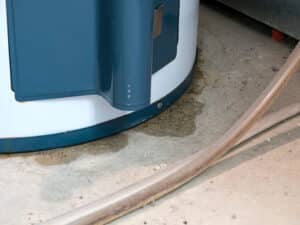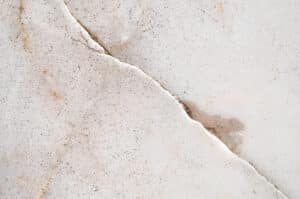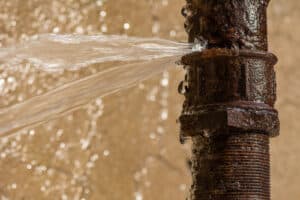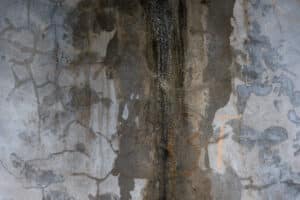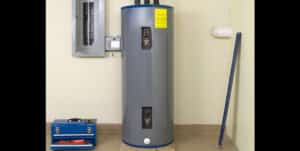Water heaters are essential to our daily lives, providing us with hot water for various household activities. However, when they start to leak, it can cause major problems such as water damage, mold growth, and even health hazards. That’s why it is important to detect water heater leaks early to prevent costly repairs and potential hazards. In this article, we will walk you through the signs to look out for and the steps you can take to detect water heater leaks. By the end of this article, you will have the knowledge you need to keep your home safe and your water heater in top condition.
Common Causes of Water Heater Leaks
Water heaters can leak due to various reasons, and it is important to know the common causes so that you can take preventive measures. One of the most common causes of water heater leaks is corrosion. Over time, the metal tank of the water heater can corrode due to the minerals in the water, causing small leaks. Another common cause is the pressure relief valve. This valve is designed to release excess pressure in the tank, but if it is faulty or malfunctioning, it can cause leaks.
Another cause of water heater leaks is a loose drain valve. This valve is located near the bottom of the tank and is used to drain the water heater for maintenance or repairs. If it is not tightened properly, it can cause leaks. Finally, a cracked or damaged tank can also cause leaks. This can happen due to various reasons, such as physical damage, excessive pressure, or corrosion.
Signs of a Water Heater Leak
Detecting a water heater leak early is crucial to preventing costly repairs and potential hazards. Here are some signs to look out for:
Water Puddles
If you notice water puddles around your water heater, it is a sign of a leak. The water can be warm or cool, depending on whether the leak is from the hot or cold water supply.
Musty Smell
If you notice a musty smell near your water heater, it is a sign of mold growth, which is caused by water leaks. Mold can cause health problems, especially for people with allergies or respiratory issues.
Rusty Water
If you notice rusty water coming out of your faucets or showerheads, it is a sign of a corroded water heater tank. This can lead to leaks and even a complete breakdown of the water heater.
Strange Sounds
If you hear strange sounds coming from your water heater, such as popping or cracking noises, it is a sign of sediment buildup in the tank. This can cause leaks and reduce the efficiency of the water heater.
How to Locate the Source of the Leak
If you suspect a water heater leak, the first step is to locate the source of the leak. Here are the steps you can take to do that:
Step 1: Turn Off the Power
Before you start inspecting the water heater, turn off the power supply. If you have an electric water heater, turn off the circuit breaker. If you have a gas water heater, turn off the gas supply valve.
Step 2: Inspect the Water Heater
Inspect the water heater carefully to locate the source of the leak. Check the tank, valves, and pipes for any signs of leaks or corrosion. If you can’t locate the leak, try wiping the tank with a dry cloth and then checking for any wet spots.
Step 3: Check the Pressure Relief Valve
If the pressure relief valve is causing the leak, it needs to be replaced. This valve is usually located on the top of the tank and has a small lever or handle. Lift the lever to release some water and then let it go. If the valve continues to leak, it needs to be replaced.
Step 4: Check the Drain Valve
If the drain valve is causing the leak, it can be tightened with a wrench. Make sure to turn off the power supply and drain the tank before tightening the valve.
Step 5: Check the Tank
If the tank is cracked or damaged, it needs to be replaced. This is a major repair, and it is best to call a professional plumber to do it.
Steps to Fix a Water Heater Leak
Once you have located the source of the leak, you can take the necessary steps to fix it. Here are the steps to fix a water heater leak:
Step 1: Turn Off the Power
Before you start fixing the leak, turn off the power supply. If you have an electric water heater, turn off the circuit breaker. If you have a gas water heater, turn off the gas supply valve.
Step 2: Drain the Tank
Drain the tank completely to prevent any water from leaking out while you are fixing the leak. You can do this by attaching a hose to the drain valve and opening it.
Step 3: Replace the Faulty Parts
If the pressure relief valve or drain valve is causing the leak, it needs to be replaced. You can buy these parts from a hardware store and replace them yourself.
Step 4: Seal the Leak
If the leak is caused by a small crack or hole in the tank, you can seal it with epoxy or silicone sealant. Make sure to clean the area around the leak before applying the sealant.
Step 5: Refill the Tank
Once you have fixed the leak, refill the tank and turn on the power supply. Check for any leaks or drips and make sure the water heater is working properly.
Preventing Water Heater Leaks
Preventing water heater leaks is easier than fixing them. Here are some preventive measures you can take:
Install a Water Softener
A water softener can reduce the minerals in the water, which can prevent corrosion in the tank.
Replace the Anode Rod
The anode rod is a sacrificial rod that is designed to attract the minerals in the water and prevent them from corroding the tank. Replace the anode rod every few years to prevent corrosion.
Insulate the Tank
Insulating the tank can reduce heat loss and prevent the tank from corroding due to condensation.
The Importance of Regular Maintenance
Regular maintenance is crucial to keeping your water heater in top condition and preventing leaks. Here are some maintenance tips:
Check the Pressure Relief Valve
Check the pressure relief valve regularly to make sure it is working properly.
Flush the Tank
Flush the tank every six months to remove any sediment buildup.
Inspect the Anode Rod
Inspect the anode rod every few years and replace it if necessary.
When to Call a Professional Plumber
If you are not comfortable fixing the leak yourself or if the leak is caused by a cracked tank, it is best to call a professional plumber. A plumber can assess the situation and make the necessary repairs.
Cost of Repairing a Water Heater Leak
The cost of repairing a water heater leak depends on the extent of the damage and the type of repair needed.
Conclusion
Water heater leaks can cause major problems and even health hazards. Detecting them early and fixing them promptly is crucial to preventing costly repairs and potential hazards. By following the steps outlined in this article, you can detect water heater leaks, locate the source of the leak, and take the necessary steps to fix it. Remember to take preventive measures and perform regular maintenance to keep your water heater in top condition. If you are not comfortable fixing the leak yourself, call a professional plumber to do it for you.


